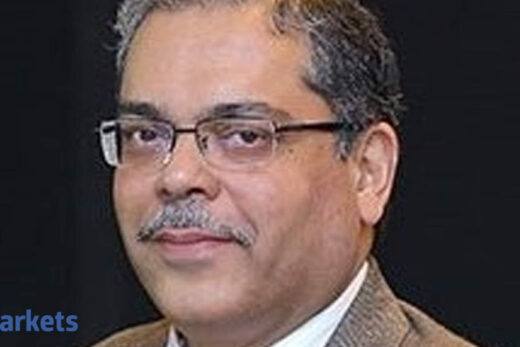much anticipated public offering will be among those looking to try their luck when the stock opens for subscription on Wednesday.
The upcoming rush of new-age consumer internet companies listing on Indian bourses, including that of the food-delivery and restaurant discovery platform favoured by Ayush, has piqued the interest of a new crop of millennial and GenZ investors who are more vested in the consumer technology ecosystem.
“If it (Zomato) manages to get above Swiggy, it can easily branch out into its own cloud kitchens and cut costs. Foreign counterparts are already doing this, and cloud kitchens have exploded in India recently,” says the Mumbai-based teenager, undeterred by the fact that a mere 10% of the Rs 9,375 crore issue that goes live on July 14 is reserved for retail investors. He will use his parent’s demat account to apply for Zomato’s IPO, he told ET.
A clutch of top Indian startups – from
Paytm to
Nykaa,
Mobikwik and Policybazaar – are set to debut on local stock markets in 2021 and are drawing hordes of young Indians looking to mark their debut as IPO investors.
Influencer Rachana Ranade, a finance content creator on YouTube who boasts of 2.75 million subscribers, has extensively covered Zomato’s story and its IPO’s potential on her channel in the last few days. “Beti ya Beta bada ho gaya (the child has grown up),” is how she described Zomato and a string of Indian startup IPOs, to her viewers during a live stream on Monday.
Online brokerage Paytm Money, which
introduced a pre-IPO booking feature for those wanting to subscribe to the offers before the official opening hours, found that 65% of pre-IPO orders for the Zomato issue came from investors under the age of 32.
“Strong brand and product awareness as well as heightened awareness around stock trading and wealth management during the pandemic has led to a new “consumer class” of young investors in India, according to Varun Sridhar, chief executive of Paytm Money. “Young investors who entered the market over the last 12-18 months, and are building their portfolios, are looking at these consumer internet firms and thinking ‘I believe in this company and I want it in my portfolio,’” he said. “There is an intrinsic understanding of the business model that comes when you’re deeply involved with the product itself.”
Tripping on valuation
Even as they remain excited about investing in a product they use, young investors are unsure about how a non-traditional company that does not already have a listed competitor and isn’t profitable, is valued. “The financials seem to have been working because of the increased order value in the lockdown. But again, there’s no comparison because it’s the first food delivery IPO in India,” says 16-year-old a high school student, Aryan, who hasn’t yet decided whether he will apply for allotment.
Nithin Kamath, the chief executive of India’s largest brokerage Zerodha, says that investors or analysts attempting to compare Zomato with its listed US-based food delivery counterpart DoorDash will almost certainly get it wrong. “It’s like comparing apples and oranges,” as India’s digital economy is far from saturation levels. “It is a young company growing fast in a high-potential market. Conventional metrics such as profitability don’t yet capture the business in its truest sense,” he added.
Terming Zomato as an “aggressive bet”, Kamath said that for young investors building their portfolios, a risk-based allocation approach would be the best trading method.
“One has to only look at Tesla’s stocks on how it defied conventions and yet achieved shareholder-led business gains. It’s something we may see in India as well…from the day one of how the Zomato stock performs, it could determine the brand going forward,” Kamath added.
The eagerness to subscribe is led by a variety of factors from a long-term view of Zomato’s potential businesses such as cloud kitchens to the repository of data it has accumulated over years, while some others are in it for listing gains.
“While a lot of people are hopeful of listing gains, there is confusion around its valuation simply because the stock market’s traditional valuation metrics don’t apply to Zomato, and therefore the stock market investors find themselves out of their comfort zone and are reluctant to comment on whether it’s lucrative from the long-term perspective,” said Pranjal Kamra, CEO of Finology, a financial advisory firm.
Several industry experts ET spoke to said young investors are treading with caution and waiting for a more comprehensive financial picture of the company before taking the plunge into what they classify as a “risky” bet.
“I don’t think post listing there will be a fight to quickly buy the shares of the company. People will wait to try and understand post-pandemic and pre-pandemic result comparisons, and slowly build their portfolio,” said Ranade, who said she will subscribe to Zomato’s IPO, because she has the risk appetite to do so.
For 23-year-old Ritvik Vipin who runs Havenspire, a financial education community of 3,000 individuals mostly under-25 years, the rush of consumer internet IPOs is more palatable for younger investors simply because they have the flexibility to see if the success story pans out.
“Because I’m young, I’m okay with holding on to this stock for five or 10 years. We have enough time and more time to hold on to a stock,” he said.



